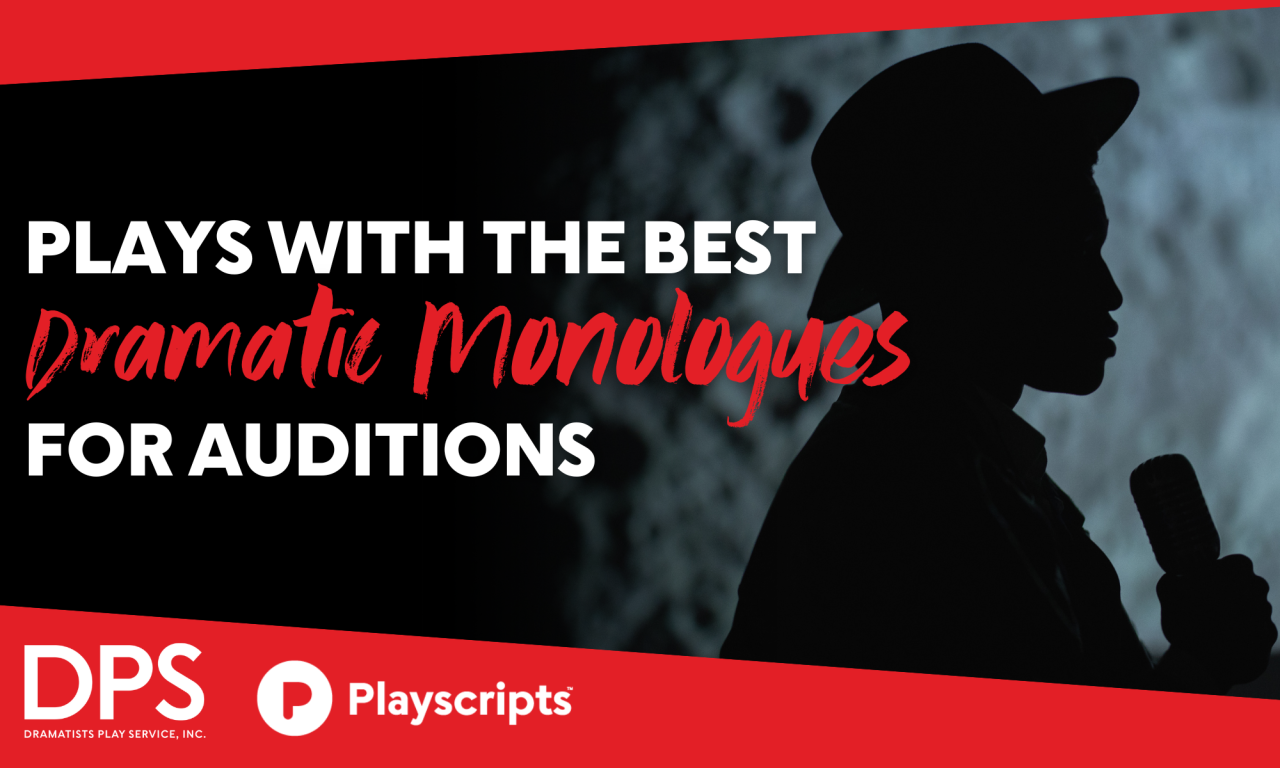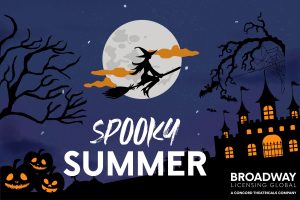When it comes to auditions, a powerful monologue can make all the difference. Whether you’re vying for a coveted role, applying to a drama program, or simply looking to sharpen your acting chops, the right piece can showcase your talent, emotional depth, and range. We’ve rounded up some of the best plays featuring unforgettable dramatic monologues—pieces that can captivate an audience, challenge a performer, and leave a lasting impression.
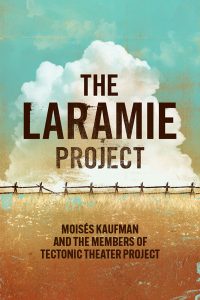 The Laramie Project by Moisés Kaufman and the Members of Tectonic Theater Project
The Laramie Project by Moisés Kaufman and the Members of Tectonic Theater Project
In October 1998, a twenty-one-year-old student at the University of Wyoming was kidnapped, severely beaten, and left tied to a fence in the middle of the prairie outside Laramie, Wyoming. His bloody, bruised, and battered body was not discovered until the next day, and he died several days later in an area hospital. His name was Matthew Shepard, and he was the victim of this assault because he was gay. Moisés Kaufman and fellow members of the Tectonic Theater Project made six trips to Laramie over the course of a year and a half, in the aftermath of the beating and during the trial of the two young men accused of killing Shepard. They conducted more than 200 interviews with the people of the town. Some people interviewed were directly connected to the case, while others were citizens of Laramie, and the breadth of the reactions to the crime is fascinating. Kaufman and Tectonic Theater members have constructed a deeply moving theatrical experience from these interviews and their own experiences in Laramie. The Laramie Project is a breathtaking collage that explores the depths to which humanity can sink and the heights of compassion of which we are capable.
 Dog Sees God by Bert V. Royal
Dog Sees God by Bert V. Royal
When CB’s dog dies from rabies, CB begins to question the existence of an afterlife. His best friend is too burnt out to provide any coherent speculation; his sister has gone goth; his ex-girlfriend has recently been institutionalized; and his other friends are too inebriated to give him any sort of solace. But a chance meeting with an artistic kid, the target of this group’s bullying, offers CB peace of mind and sets in motion a friendship that will push teen angst to the very limits. Drug use, suicide, eating disorders, teen violence, rebellion, and sexual identity collide and careen toward an ending that’s both haunting and hopeful.
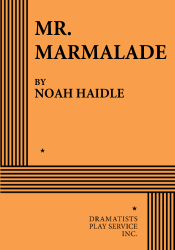 Mr. Marmalade by Noah Haidle
Mr. Marmalade by Noah Haidle
Lucy is a four-year-old girl with a very active imagination. Unfortunately, her imaginary friend Mr. Marmalade doesn’t have much time for her. Not to mention he beats up his personal assistant, has a cocaine addiction, and a penchant for pornography and very long dildos. Larry, her only real friend, is the youngest suicide attempt in the history of New Jersey. Mr. Marmalade is a savage black comedy about what it takes to grow up in these difficult times.
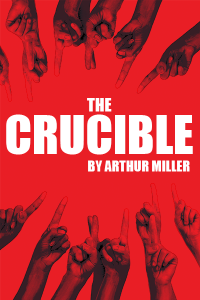 The Crucible by Arthur Miller
The Crucible by Arthur Miller
Widely considered a masterpiece, this timeless classic challenges American ideas of power, intolerance, and justice. In the Puritan community of Salem, Massachusetts, a servant girl accuses a farmer’s wife of witchcraft. One accusation spirals into many, uncovering a web of bigotry and deceit that changes their lives forever. Among the most produced plays since its 1953 debut, The Crucible is both a gripping historical drama and an evergreen parable of contemporary society.
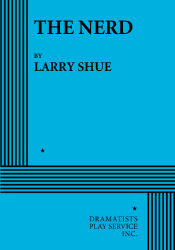 The Nerd by Larry Shue
The Nerd by Larry Shue
Now an aspiring young architect in Terre Haute, Indiana, Willum Cubbert has often told his friends about the debt he owes to Rick Steadman, a fellow ex-GI whom he has never met but who saved his life after he was seriously wounded in Vietnam. He has written to Rick to say that, as long as he is alive, “you will have somebody on Earth who will do anything for you” —so Willum is delighted when Rick shows up unexpectedly at his apartment on the night of his thirty-fourth birthday party. But his delight soon fades as it becomes apparent that Rick is a hopeless “nerd” —a bumbling oaf with no social sense, little intelligence and less tact. And Rick stays on and on, his continued presence among Willum and his friends leading to one uproarious incident after another, until the normally placid Willum finds himself contemplating violence—a dire development which, happily, is staved off by the surprising “twist” ending of the play.
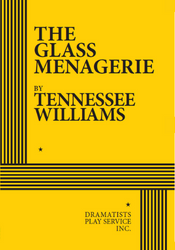 The Glass Menagerie by Tennessee Williams
The Glass Menagerie by Tennessee Williams
Amanda Wingfield is a faded remnant of Southern gentility who now lives in a dingy St. Louis apartment with her son, Tom, and her daughter, Laura, who has a physical handicap and debilitating shyness. The father has left home; Tom supports his mother and sister with a shoe-factory job he finds unbearable. When Amanda convinces Tom to bring home from his workplace a “gentleman caller” for Laura, the illusions that Tom, Amanda, and Laura have each created in order to make life bearable collapse about them.
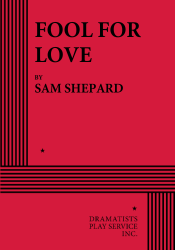 Fool For Love by Sam Shepard
Fool For Love by Sam Shepard
The scene is a stark motel room at the edge of the Mojave Desert. May, a disheveled young woman, sits dejectedly on a rumpled bed while Eddie, a rough-spoken rodeo performer, crouches in a corner fiddling with his riding gear. When he attempts to console May, who is distressed by Eddie’s frequent absences and love affairs, she seems, at first, to soften—but then she suddenly attacks him. As the recriminations pour out, and the action becomes at times physically violent, the desperate nature of their relationship becomes apparent—they cannot get along with, or without, one another, yet neither can subdue their burning passion. The poignancy of their situation (they are half-brother and half-sister as well as lovers) is pointed out by the play’s two other characters: a hapless young man who stops by to take May to the movies and becomes the butt of Eddie’s funniest yet most humiliating jokes, and a ghostly old man (perhaps their father) who sits in a rocking chair at the side of the stage, sipping whiskey and commenting wryly on what he observes. Eventually May and Eddie tire of their struggle and embrace—but it is evident that the respite is temporary and that their love, the curse of the past which haunts them, will remain forever damned and hopeless.
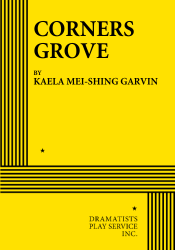 Corner’s Grove by Kaela Mei-Shing Garvin
Corner’s Grove by Kaela Mei-Shing Garvin
This play, inspired by Our Town, keeps the original’s celebration of daily human rituals but shifts the story more than seventy years into the future. But how much has truly changed? Parents still get their children ready in the morning, kids still go to school with friends they’ve known all their lives, and everyone still makes plans for their post-graduation futures, including seemingly destined couple George and Emily. But three years after graduation, the bonds that once tied friends together have changed: new priorities no longer fit old narratives as independent hopes, feelings, and sexualities come into focus. George, Emily, and their friends are determined to live their lives on their own terms and to shed versions of themselves they’ve outgrown, whether it be a gender identity or a relationship. Life has only spun forward, and the only way for the residents of Corners Grove to keep up is to embrace the unknown and commit to their own truths.
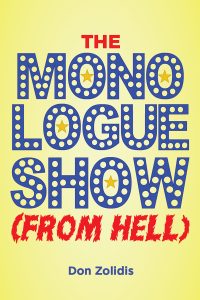 The Monologue Show (From Hell) by Don Zolidis
The Monologue Show (From Hell) by Don Zolidis
It took Mr. Banks’s drama class three long months to prepare for their monologue show…but barely a minute to throw all their plans out the window. From the couple staging their real-life break-up to the garden-gnome thief confessing his crimes, everything that can go wrong will in this flexible collection of hilarious tall tales.
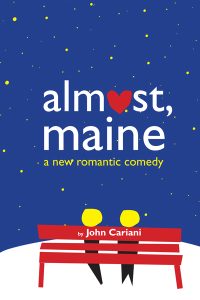 Almost, Maine by John Cariani
Almost, Maine by John Cariani
Welcome to Almost, Maine, a place that’s so far north, it’s almost not in the United States. It’s almost in Canada. And it’s not quite a town, because its residents never got around to getting organized. So it almost doesn’t exist. One cold, clear, winter night, as the northern lights hover in the star-filled sky above, the residents of Almost, Maine, find themselves falling in and out of love in unexpected and hilarious ways. Knees are bruised. Hearts are broken. But the bruises heal, and the hearts mend—almost—in this delightful midwinter night’s dream.
More Plays with Dramatic Monologues for Auditions
• The Book of Liz by David Sedaris and Amy Sedaris
• Fabulation or, The Re-Education of Undine by Lynn Nottage
• The Goat or, Who is Sylvia? by Edward Albee
• The Heidi Chronicles by Wendy Wasserstein
• Blues For An Alabama Sky by Pearl Cleage
• The Diary of Anne Frank by Frances Goodrich & Albert Hackett, newly adapted by Wendy Kesselman
• In The Blood by Suzan-Lori Parks
• The Mineola Twins by Paula Vogel
• Stop Kiss by Diana Son
• Snakebit by David Marshall Grant
• Stupid Kids by John C. Russell
• The Vagina Monologues by Eve Ensler
• Wit by Margaret Edson
• The Weir by Conor McPherson
• Chicken & Biscuits by Douglas Lyons
• Proof by David Auburn
• Overheard: Fourteen Commissioned Monologues Written by TNB2S+ Artists for TNB2S+ Artists by A.A. Brenner, Victor I. Cazares, Mashuq Mushtaq Deen, Kaela Mei-Shing Garvin, Isaac Gómez, Sam Hamashima, Bianca Leigh, Azure D. Osborne-Lee, Sylvan Oswald, travis l. tate, UGBA, Else Went, Liqing Xu and Sharifa Yasmin

